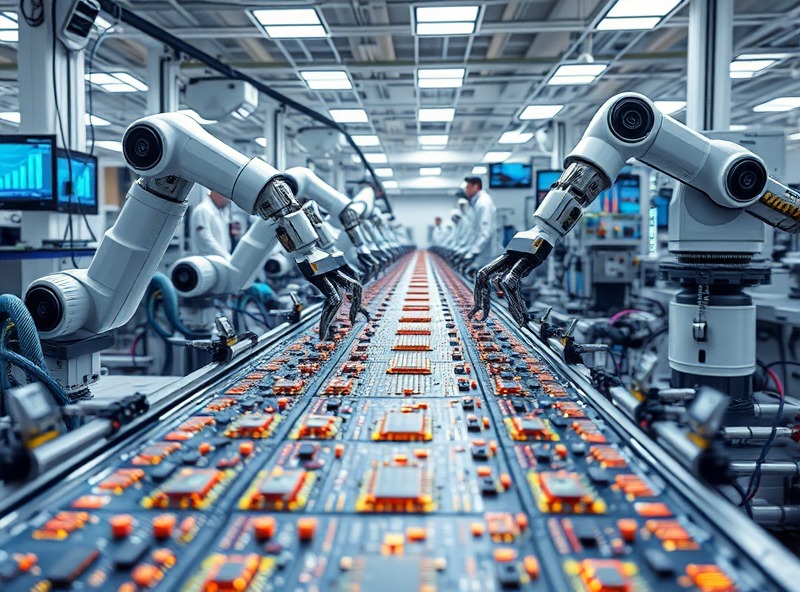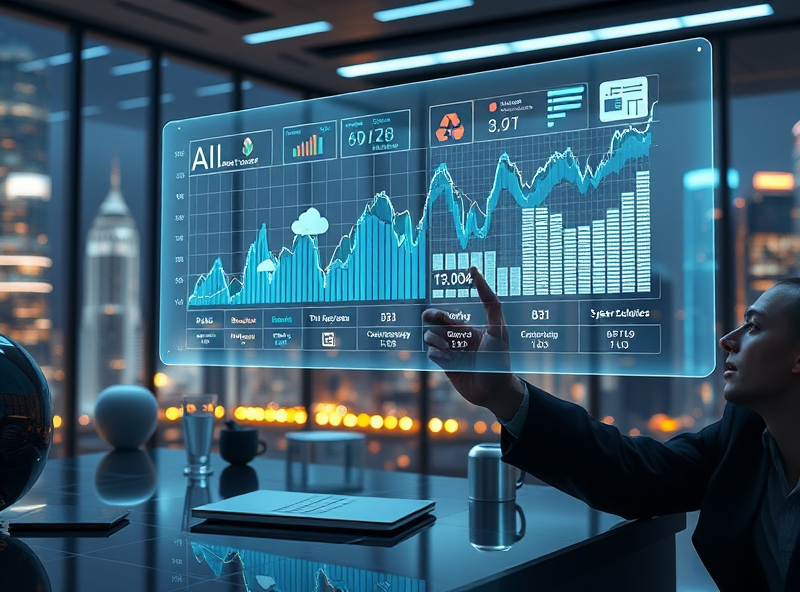AI and Cloud Computing: Driving Digital Transformation

Artificial Intelligence (AI) and cloud computing are two of the most transformative technologies shaping the digital era. Together, they are revolutionizing industries by enabling businesses to scale operations, improve efficiency, and make data-driven decisions. For instance, in the healthcare sector, AI-powered cloud platforms are being used to analyze patient data, predict disease outbreaks, and personalize treatment plans. In retail, AI algorithms hosted on cloud platforms are enhancing customer experiences through personalized recommendations and efficient inventory management. Moreover, businesses can now leverage the scalability of cloud computing to deploy AI models globally, ensuring faster innovation and reduced costs. These technologies are not just tools; they are the backbone of digital transformation, empowering organizations to stay competitive in an ever-evolving landscape.
Semiconductor Growth: From Stability to Innovation

Semiconductors are the backbone of modern technology, powering everything from smartphones to electric vehicles. Over the years, the semiconductor industry has transitioned from a focus on stability and reliability to becoming a hub of innovation. This shift is driven by the increasing demand for faster, smaller, and more energy-efficient chips. For instance, advancements in semiconductor manufacturing, such as the development of 3nm and 2nm process nodes, are enabling devices to perform more complex tasks while consuming less power. Moreover, the rise of AI, IoT, and 5G technologies has accelerated the need for cutting-edge semiconductor solutions. These innovations are not only enhancing consumer electronics but also revolutionizing industries like healthcare, automotive, and renewable energy. By understanding the growth potential of semiconductors, businesses and individuals can better prepare for a future where technology continues to evolve at an unprecedented pace.
Cybersecurity Advancements: Securing a Digital Future

In today’s hyper-connected world, cybersecurity is no longer just an option; it’s a necessity. As technology continues to evolve, so do the threats that target sensitive data and systems. Recent advancements in cybersecurity are helping businesses and individuals stay one step ahead of cybercriminals. For instance, Artificial Intelligence (AI) is now being used to detect and respond to threats in real-time. AI-powered systems can analyze vast amounts of data to identify unusual patterns, making it easier to prevent potential breaches before they occur. Additionally, blockchain technology is revolutionizing data security by creating decentralized and tamper-proof systems, ensuring that sensitive information remains safe. These innovations not only protect our digital assets but also foster trust in the digital ecosystem, enabling a safer and more secure future for everyone.
Balancing Risks: Regulatory and Market Challenges

The rapid growth of tech stocks has undoubtedly transformed industries and created new opportunities for innovation. However, this growth also comes with significant challenges, particularly in terms of regulatory and market risks. Governments worldwide are introducing stricter regulations to address concerns like data privacy, antitrust issues, and ethical AI usage. While these regulations aim to protect consumers and promote fair competition, they can also create uncertainties for tech companies, potentially impacting their growth and profitability.
On the market side, tech stocks are often more volatile compared to other sectors. Factors such as global economic shifts, geopolitical tensions, and rapid technological advancements can lead to sudden fluctuations in stock prices. For investors, this means a need for careful risk assessment and diversification to balance potential rewards with the inherent risks.
Despite these challenges, tech companies that proactively adapt to regulatory changes and focus on sustainable innovation are likely to thrive in the long term. By staying informed about market trends and regulatory updates, both investors and businesses can make smarter decisions, ensuring that the tech sector continues to drive positive change in the future.



